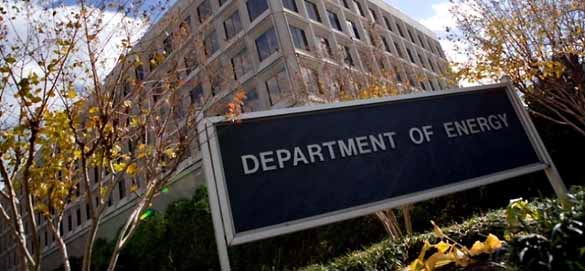 Department of Energy. Courtesy/DOE
Department of Energy. Courtesy/DOEDepartment of Energy employees and contractor employees may get a little more help in the future to combat whistleblower retaliation by their employers.
 Steven Croley
Steven Croley
DOE general counsel Steven Croley announced in a DOE blog Aug. 4 that he was taking two new steps to improve the situation.
First, he has sent an “Acquisition Letter” to senior procurement executives of DOE and the National Nuclear Security Administration intended to make clear “if and when the Department will reimburse legal costs in whistleblower cases.”
The clarification appears to be aimed at concerns raised in a related audit in February by the DOE Inspector General. After a detailed review of 46 settlement agreements at 6 sites, the AG found that 36 of the settlements (78 percent), with a combined value of more than $62 million, had “no documented evidence a settlement review had been performed.”
Included in these agreements were three that involved whistleblower cases. The AG noted that the department had not gotten around to developing required guidance for reviewing these kinds of cases and determining who was responsible for the liability.
A second step is a proposed rule change that was published in the Federal Register Aug. 12 that more clearly establishes that DOE “can assess civil penalties against contractor and subcontractors for retaliating against any employee who raises concerns relating to nuclear safety.
Croley did not say what inspired the proposed changes at this time, but observers were very quick to make a connection with a Government Accountability Office report that came out July 11.
“DOE is unusual among nuclear facility operators in that it also acts as its sites’ main safety regulator and, as such, is authorized to enforce its own nuclear safety standards and to penalize its contractors for failing to comply with those standards,” the GAO report observed.
The GAO report honed in particularlyon the questions of health and safety concerns and the environment in which those concerns could be raised, particularly the openness of that environment. Investigator’s focused on the three largest nuclear weapons sites, the Hanford site in Washington, Los Alamos National Laboratory in New Mexico, and Savannah River Site in South Carolina.
In one specific survey result from LANL’s Chemistry and Metallurgy Research Replacement project from 2012 appeared to be slightly more positive than the two other major sites that were studied. GAO found that of respondents from three contractors working on CMRR, 65 percent, 75 percent and 78 percent respectively agreed with the statement “management does not tolerate retaliation of any kind for raising concerns.”
Although the report is lengthy and arduous, some elements are less than reassuring, like the subheading for one section titled, “Efforts to Evaluate the Environment for Raising Concerns Included a Coordinated Review of DOE’s Safety Culture and Various Ad Hoc Assessments and Independent Reviews.” It was followed by a subhead that confessed, “Efforts to Evaluate the Environment for Raising Concerns Included a Coordinated Review of DOE’s Safety Culture and Various Ad Hoc Assessments and Independent Reviews.”
For a report issued half-way through 2016, it seems remarkable that the most recent year for which there was sufficient data was 2013, which may be an indicator of the priority given to this kind of information at the DOE facilities.
The highlights of the report come at the end. One anecdote tells of an Employees Concern Program manager who was fired in 2015, “and has alleged in court that her termination was in retaliation for cooperating with GAO during this engagement.” Then, this anonymous quotation seems typical of several individual statements and incidents that sum up this extremely revealing part of the report: “They will make an example of anyone who challenges them.”
Given DOE’s track record on the matter of whistleblowers, and the part of the GAO investigation that sounds most authentic, the DOE general counsel’s response can hardly be said to be commensurate with the scope of the problem.

